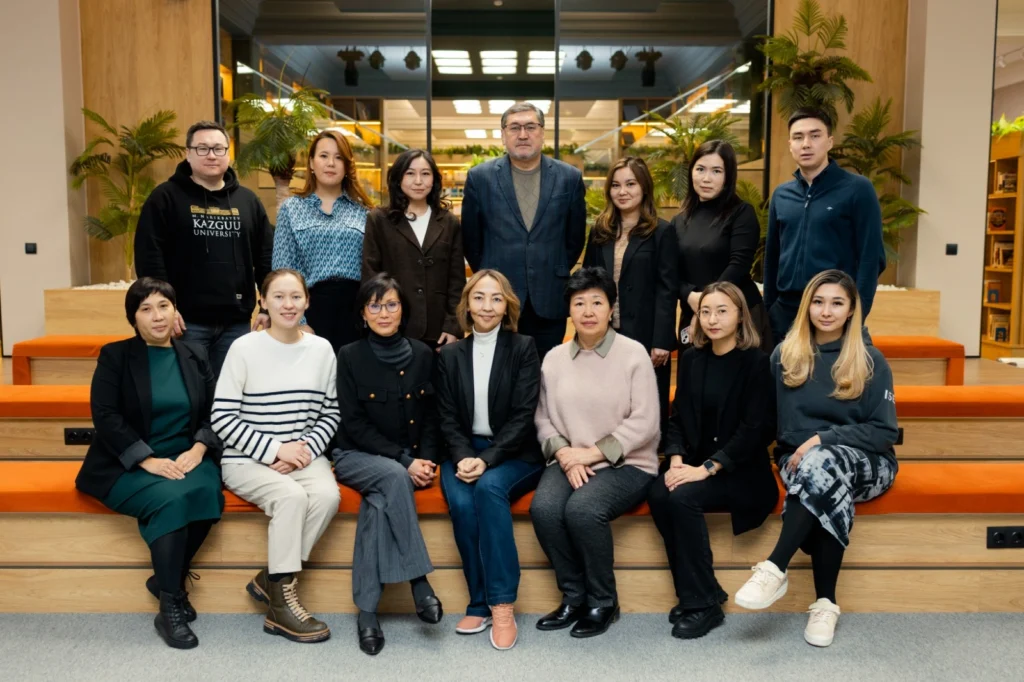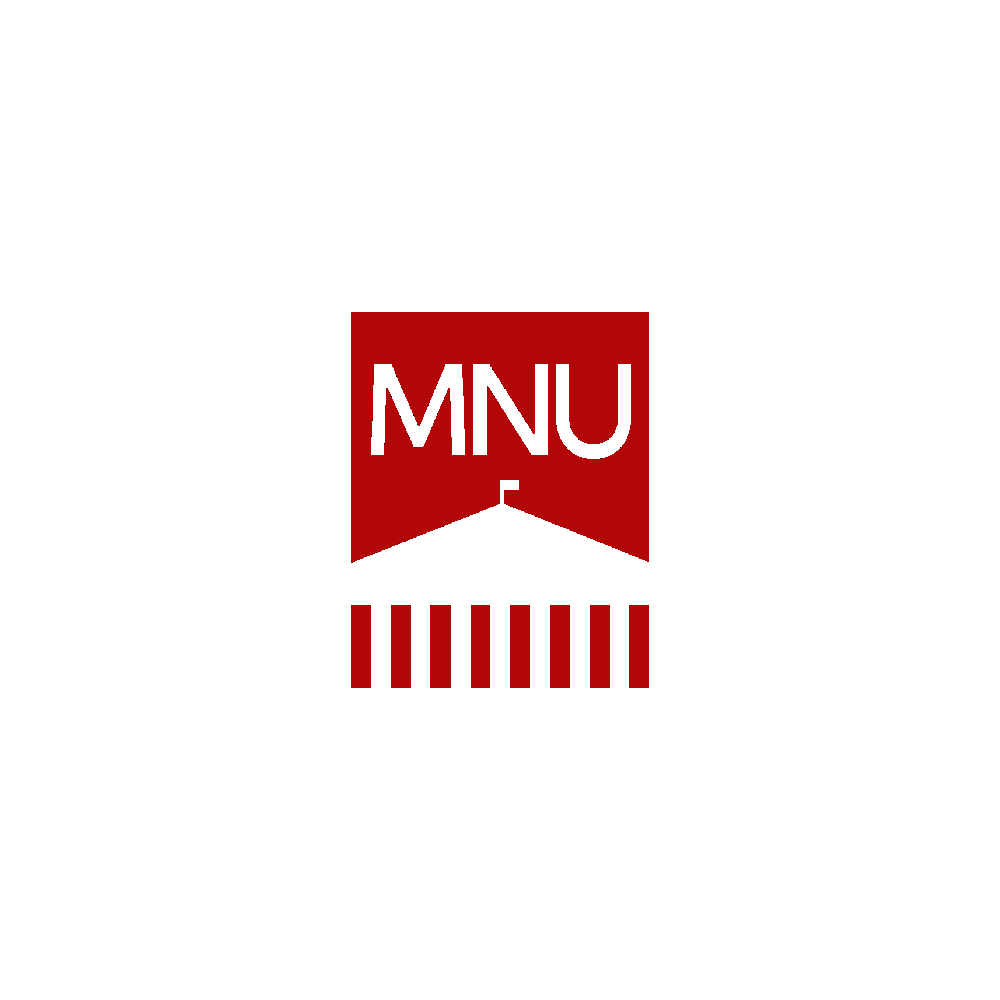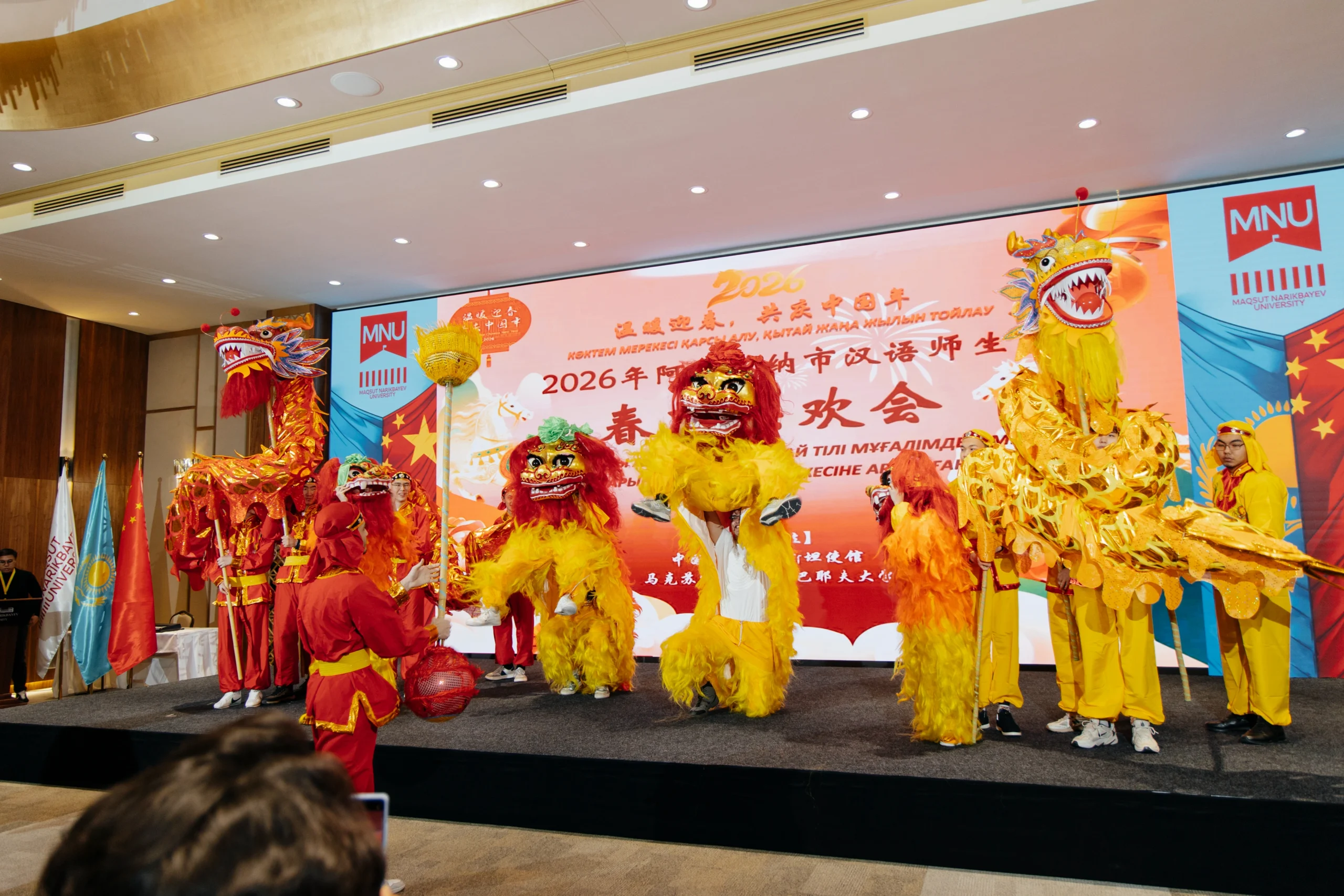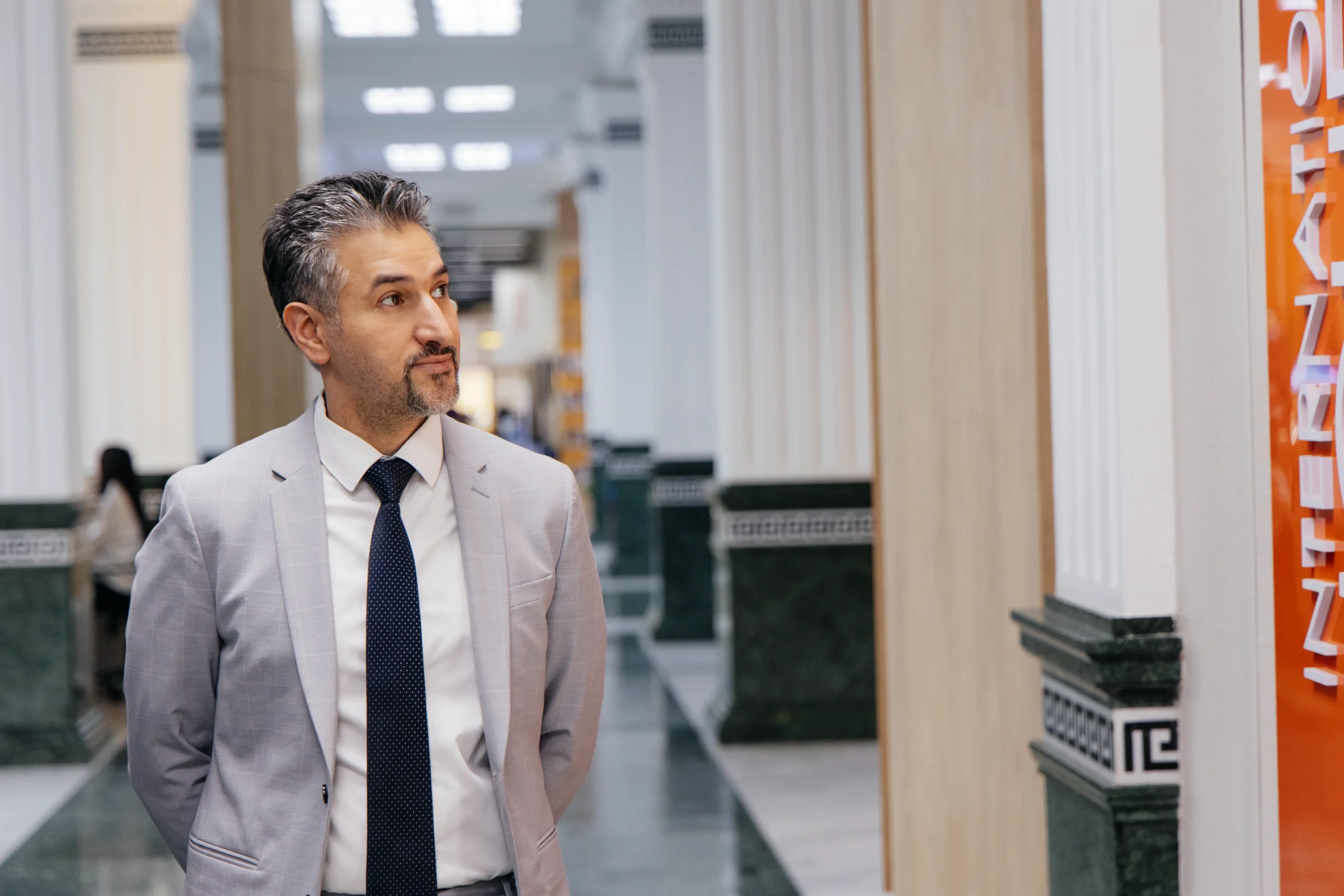Most of the academic programmes at Maqsut Narikbayev University (MNU) are offered through the International School of Economics (ISE). The School’s degree programmes continue to receive prestigious accreditations, its students achieve success in various competitions, and a new master’s programme has recently been launched. On the occasion of the School’s upcoming 20th anniversary, the Dean of the International School of Economics, Ms Saule Kemelbayeva, provided a detailed account of the School’s recent initiatives and future plans.
– Ms Saule, the academic year is drawing to a close. How will it be remembered for the International School of Economics? What key events would you highlight?
– Among the most significant developments of the past academic year are the following: the Bachelor’s in Marketing programme obtained a new international professional certification from the Chartered Institute of Marketing (UK); a joint educational programme was launched in collaboration with Montpellier Business School (France); and a new Master’s programme in Political Science and International Relations was introduced.
Once again, we have reaffirmed our leading positions in the rankings of academic programmes of the Atameken National Chamber of Entrepreneurs. Of the four bachelor’s programmes submitted for evaluation, Economics and Management ranked first, while Finance and Accounting secured second place among 40–60 participating universities nationwide.
Six of our students successfully completed a double degree programme with Hof University of Applied Sciences (Germany) in Business and IT. This year, our students demonstrated outstanding achievements not only in their academic pursuits, but also in extracurricular, professionally-oriented activities. Notably, they participated in over 15 case championships and other competitions hosted by leading companies, earning awards in many of them. Approximately 200 students participated in Big 4 Weeks, which involved qualifying tests and interviews with the “Big Four” accounting firms. Many of them received job offers or secured paid internships.
Two new research centres were established this year within the International School of Economics: the Centre for Economic Research and the Centre for Global and Regional Governance. Over the past year, academic staff within the research division organised more than 10 academic events, hosted three student conferences, and published 29 scholarly papers, including 16 articles indexed in the Scopus and Web of Science databases.
I would also like to highlight the remarkable achievement of four students and recent graduates who passed Level I of the CFA examination on their first attempt. The Chartered Financial Analyst (CFA) designation is among the most prestigious international professional certifications in finance. To earn the CFA charter, candidates must pass three rigorous examinations, the first of which encompasses ten subjects across finance, economics, and statistics. Our bachelor’s curriculum aligns with up to 90% of the content covered in this exam, enabling students to prepare concurrently while completing their degree. Top-performing students are also eligible for significant registration fee discounts. The pass rate for the CFA Level I examination typically does not exceed 40–45%, underscoring the commendable performance of our students. Our Master’s in Finance programme is designed to prepare students for all three CFA levels. We are confident that those who successfully pass Level I will also perform well in Levels II and III.
– In addition to the accreditation of academic programmes by prestigious international agencies such as FIBAA, CIMA, CFA, and GARP, the Finance and Accounting specialisations have recently been reaccredited by the globally recognised ACCA. What does this mean for students? What advantages does this provide to graduates of the School? Are there any plans to seek accreditation from other major international bodies?
– This year, we successfully reaccredited the Finance and Accounting programmes with the Association of Chartered Certified Accountants (ACCA) through to 2029. The curricula of these programmes are aligned with nine out of the thirteen examinations required for full ACCA certification – the highest number of exemptions that a university can offer. ACCA is a prestigious British certification in the field of accounting and finance.
The ISE programmes were initially accredited by ACCA in 2016, attesting to their high quality and compliance with rigorous international standards. This accreditation grants our students access to relevant knowledge and best professional practices. As part of the ACCA Accelerator programme for our students, a scholarship scheme is available that offers exemptions from examinations as well as significant discounts on ACCA registration fees.
As previously mentioned, our Marketing programme has received official recognition from the Chartered Institute of Marketing (CIM), the world’s oldest professional marketing body, established over 115 years ago. CIM is represented and acknowledged in more than 120 countries. For instance, approximately 30–35% of marketing directors worldwide hold a CIM certificate. The initial level of CIM certification consists of four modules. Our accreditation allows graduates of the Marketing programme to be exempted from two of these modules, and to receive in-depth preparation for the remaining two. In addition, CIM grants us access to a wide array of advanced resources, including literature, webinars, and training materials. As part of the certification preparation process, we revised the programme to better reflect CIM’s requirements, shifting the focus more toward the development of research and analytical skills, rather than primarily soft skills.
Looking ahead, we plan to obtain international professional recognition in the fields of supply chain management and production management. We are actively developing this promising specialisation, which equips students with knowledge not only of the fundamental principles of logistics and production, but also of operational management, strategic planning, and engineering solutions.
Securing and maintaining international professional certifications requires considerable investment of both time and resources. However, the outcomes fully justify these efforts. Such accreditations ensure that our graduates’ knowledge and competencies meet international standards and align with best professional practices. Furthermore, they significantly expand career opportunities, enabling graduates to work for international companies, qualify for higher starting salaries, and enhance their prospects for rapid career progression.
Our mission, and indeed our social responsibility, is to ensure that our graduates become confident professionals capable of securing a decent quality of life for themselves and their families, while also contributing meaningfully to the professional community in Kazakhstan and the broader development of our country.
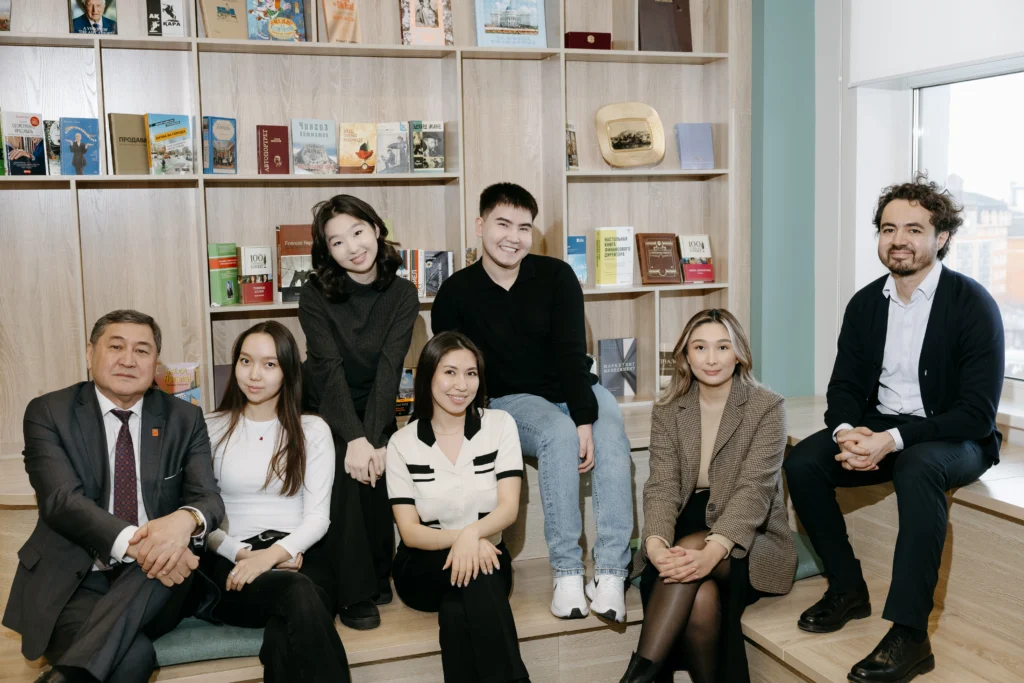
– The majority of students at MNU are enrolled in undergraduate and graduate programmes within the International School of Economics. Does this reflect the high quality and practical orientation of your academic offerings? How do you gain the trust of applicants and ensure compliance with international standards?
– Indeed, this year, the number of students enrolled in the International School of Economics slightly exceeds that of other schools within the university. This can partly be attributed to the wider range of academic programmes offered by our School. Nevertheless, both we and our colleagues from other departments strive to ensure that our programmes meet the highest expectations of employers. As a labour market specialist, I frequently tell our students that, upon successful completion of their studies, they may find themselves somewhat overqualified for the Kazakh labour market. However, I believe it is preferable to be overqualified than underqualified.
It is also important to acknowledge that young people entering the labour market are currently at a disadvantage. Over the next decade, we will face an unfavourable demographic trend: the number of young professionals entering the job market will exceed the number of positions created, as economic growth is not keeping pace with demographic changes. Therefore, it is imperative that our graduates remain competitive not only within Kazakhstan but also on the global stage. While we hope they choose to contribute to the national economy, they should also feel confident pursuing international careers — something that many of our alumni have already accomplished.
Earning and maintaining trust depends entirely on the high level of professionalism and standards that we uphold in our work. Ensuring academic quality is a multifaceted process that involves every team member — from instructors who deliver lectures in the classroom to examination proctors who ensure academic integrity. Each member of our team is committed to these shared values, which enables us to operate as a well-coordinated and effective unit.
I would also like to highlight that all of our faculty members are internationally competitive. Should they choose, they could readily secure employment in international companies or academic institutions abroad. This is because they hold degrees from internationally recognised universities, possess professional certifications, have studied in English, and many have significant experience working in industry or at foreign universities.
– In addition to programmes in economics, the School also trains future IT professionals and diplomats. How significant are these programmes? Is there a growing trend among students to pursue additional specialisations (minors)? Could you also elaborate on the new Master’s degree programme in Political Science and International Relations?
– The International Relations programme was launched at our School five years ago, and this year we are graduating our second cohort of bachelor’s degree students. Although it is less applied in nature than our business-related programmes, it has proven to be very popular among applicants, and currently, approximately 30% of our undergraduate students are enrolled in it.
The programme’s popularity may, in part, reflect a broader issue — namely, that many applicants in Kazakhstan lack access to reliable information about the labour market, including career prospects and associated risks. Unfortunately, we operate in an information vacuum, with limited data-based research on labour market trends and forecasts. Career guidance in secondary education remains underdeveloped. International Relations is undoubtedly an intellectually engaging and high-quality programme, the standards of which we firmly uphold. However, the labour market offers comparatively fewer opportunities in this field, and the competition for available positions is more intense. For instance, to work in international organisations — which was the initial target of this programme — a bachelor’s degree is no longer sufficient; at minimum, a master’s degree is now required. We frequently hear such insights from our partners during meetings of the International School of Economics Business Council. In response, we have revised our bachelor’s degree curriculum and are launching a new master’s programme to better align with labour market demands. The Bachelor’s in International Relations will now include three distinct specialisations designed to refine and deepen students’ competencies. One of these is Data Analysis in International Relations. It is worth noting that all of our programmes emphasise data literacy, including the ability to process and analyse information and to draw evidence-based conclusions for informed decision-making. I believe this skill is as fundamental today as reading and writing. It encompasses not only technical competencies but also critical analytical thinking and the capacity to evaluate quantitative data effectively. The new Master’s in Political Science and International Relations integrates a wide array of analytical and research methods, covering both qualitative and quantitative approaches.
Our IT programme is also quite unique. It integrates IT and business disciplines and was developed in collaboration with our partner institution, Hof University of Applied Sciences. Graduates of this programme typically secure employment in roles related to business management within the IT sector.
By the way, we have developed a comprehensive guide specifically for prospective students considering programmes at the International School of Economics. The guide outlines what to expect during their studies, potential career paths after graduation, and the advantages and risks associated with each academic programme.
At the International School of Economics, we offer 16 additional specialisations (minors). Many of our graduates complete their studies with one or even two minor certificates in addition to their main diploma. Some even build their careers based on their minor specialisation. For instance, we have graduates from Economics and Management who have successfully pursued careers in marketing, thanks to the Marketing minor.
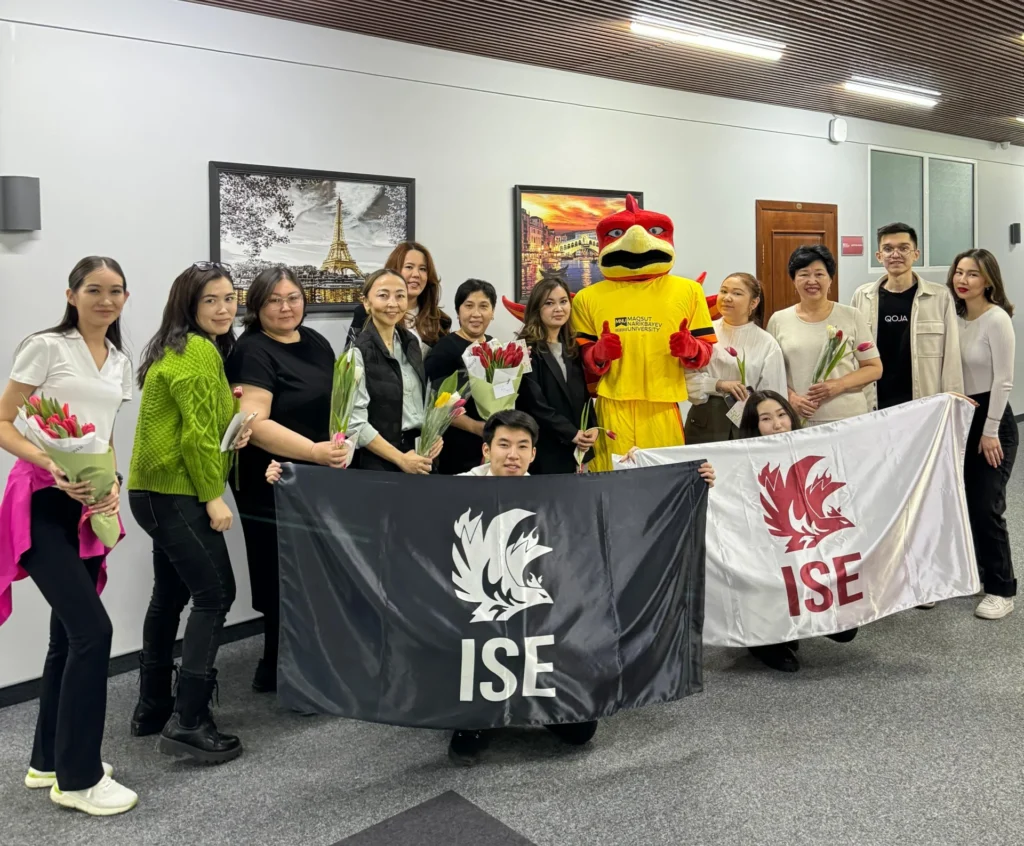
– Maqsut Narikbayev University is currently undergoing a transformation into a research university. How does the School contribute to the implementation of the University’s Development Strategy, and what kind of support is provided to young scholars?
– At present, the International School of Economics employs 31 PhD holders and PhD candidates, which represents nearly 40% of our academic staff. In addition to teaching responsibilities, these colleagues are actively engaged in research activities, contribute to various projects, and publish in internationally recognised academic journals, including those indexed in Scopus and Web of Science. Many of them are young scholars who have returned to Kazakhstan after gaining education and work experience abroad.
In line with the School’s mission — “We cultivate internationally competitive professionals for business, government, and civil society by enabling synergy of research and industry expertise” — we aim to maintain a balanced composition of academic staff, combining both researchers and industry practitioners. Faculty members who follow the research track at MNU are given the opportunity to allocate part of their workload to research. At the same time, they are afforded the academic freedom to determine the focus and methodology of their research.
This year, the School launched two research centres and introduced Research Assistant (RA) positions for undergraduate and graduate students who demonstrate potential in research. I would also note that student interest in research and academic careers has grown significantly. This shift can be attributed to both strong institutional support from the university leadership and the inspiring example set by our faculty researchers, many of whom have become role models for students.
– The School has an active Business Council, where potential employers and partners regularly propose enhancements to the content of academic programmes. At the most recent council meeting, participants recommended stronger integration of artificial intelligence (AI) in the learning process. Are there any planned changes in this regard, and how important is it to effectively incorporate AI in education today?
– Yes, we consistently receive valuable input from employers and partners through the Business Council. This year, we organised two separate meetings — one for International Relations and one for Business programmes. During one of these sessions, we conducted a survey of employers to identify the competencies most in demand in the labour market, and some of the findings were unexpected. For instance, we had long assumed that soft skills — such as teamwork and communication — were the most sought-after by employers. However, our business partners prioritised other attributes: ethics and integrity, strategic thinking, a results-oriented mindset, and the ability to work and make decisions independently.
Among the other topics discussed was the integration of an AI literacy course. Based on feedback from our partners, we are currently developing an asynchronous AI course that will be mandatory for all students starting next academic year. The course will emphasise both ethical considerations and the effective application of AI to solve real-world business problems.
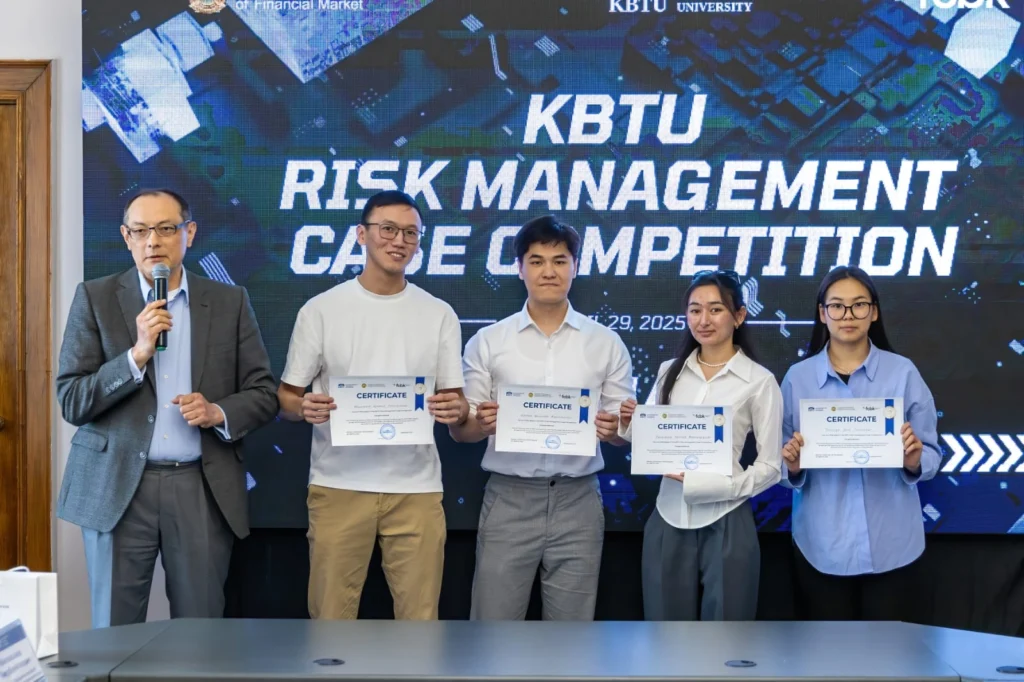
– In the 2024/2025 academic year, students from the International School of Economics participated in numerous case championships and achieved outstanding results in prestigious competitions. What key accomplishments would you highlight, and what are the reasons behind these successes?
– This is truly a source of great pride for us. At present, no one promotes our programmes in the educational services market and the professional community better than our students and alumni. A few years ago, a student-led Case Club was established at the School under the initiative and guidance of our colleague Zhan-Tore Ayazbekov. This year, the Club’s members have brought home several victories in prestigious student business competitions such as the KBTU Risk Management Case Competition, McKinsey & Company Case Championship, ACCA’s CFO Generation, SAP BTP Exploration Workshop: Nomad HackFest, British American Tobacco Case Championship, Republican DBK Datathon, Metricon Econometrics Hackathon, and others.
What is especially valuable is that through participation in these competitions, our students not only hone their analytical and presentation skills, but also provide us with insightful feedback on the strengths and areas for improvement within our curriculum. This internal perspective is of great use to us. For instance, following one championship, students noted that their financial knowledge exceeded that of their peers from other universities, but their economic knowledge was comparatively weaker. In response, we intensified efforts to enhance economic literacy, not only through formal courses but also via extracurricular activities. With the support of colleagues, our students organised a case championship on macroeconomic issues, judged by representatives from the National Bank.
– The International School of Economics has also launched a new project, Tabys Syry, where successful entrepreneurs share their stories in Kazakh. Will this project continue, and how does it contribute to promoting the state language?
– Yes, we certainly intend to continue this project on a permanent basis. The idea arose when we realised that Kazakh is the primary language for a growing number of our students, yet many guest speakers still tend to use Russian. While multilingualism is an important skill, we must not forget that Kazakh is our national language, and its development is a collective responsibility. At present, due to the nature of our programmes in business and international relations, instruction is delivered in English. However, we are planning to introduce courses in Kazakh in the future. This will require investment, as there is a lack of high-quality academic materials in Kazakh. Therefore, we have decided to begin with small but meaningful steps such as Tabys Syry.
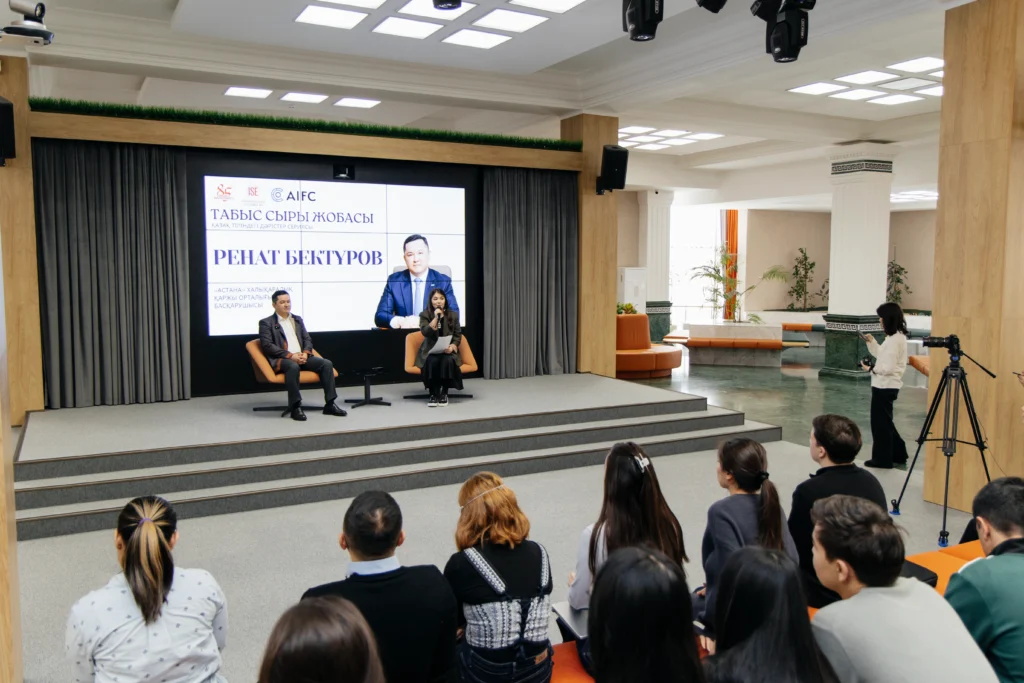
– Over 900 students are expected to graduate from MNU this year, one third of whom are from the International School of Economics. How would you describe the typical graduate of Maqsut Narikbayev University?
– I would describe our graduates as young, ambitious professionals — responsible and ethical, capable of independent thinking and decision-making, constructive in communication, and highly competitive in the labour market. Personally, I find great joy in witnessing the transformation our students undergo: they join us as young school-leavers and leave as mature, confident professionals. Contributing to this journey is a major source of motivation for myself and many of my colleagues.
– This year, the International School of Economics celebrates its 20th anniversary. The School’s vision is to become one of the leading institutions in Central Asia, offering world-class education and research that meets the needs of both regional and global markets. What is required to achieve this, and what are the School’s strategic priorities for the new academic year?
– Our School is in a constant state of development and evolution. Since being established, it has undergone major transformational changes. For example, in 2019–2020, the School — then known as the Higher School of Economics — offered 14 undergraduate and 9 master’s programmes, with a total enrolment of 869 students. Starting in the 2020–2021 academic year, we began the process of optimising our programme portfolio to focus more strongly on specialisation. Some programmes were closed or transferred to other Schools. As a result, while we now offer fewer programmes, the average number of students per programme has increased more than fivefold.
In December 2021, we rebranded as the International School of Economics to better position ourselves in both the local and international educational and professional markets. This remains our key strategic direction: not only to produce internationally competitive graduates, but to build an internationally recognised brand. I believe we have the necessary foundations to achieve this — strong faculty and research personnel, well-developed institutional policies, shared team values, and a clear understanding of our path forward. What remains is continued commitment and time.
– Thank you for sharing your valuable insights!
